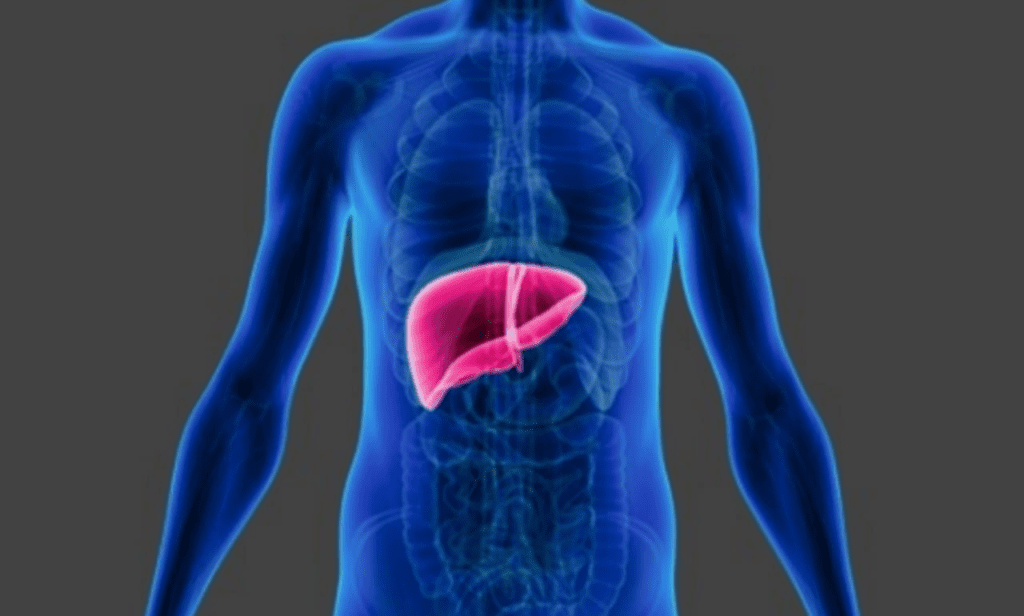
You reach for that bottle of green tea extract or bodybuilding powder, believing you’re boosting your health. But inside your body, an invisible crisis might be unfolding—one that could land you in the emergency room needing a liver transplant. This isn’t alarmist fiction; it’s the reality for thousands of Americans who discover too late that their trusted supplements are toxic time bombs for their livers. The shocking truth? Unlike prescription drugs, these over-the-counter products undergo zero safety testing before hitting shelves.
Consider what happened to 38-year-old Michael (name changed for privacy). He took a widely marketed green tea extract for weight loss—a “natural” product sold at his local pharmacy. Within weeks, his skin turned yellow, his urine darkened to tea-color, and crippling fatigue set in. Doctors diagnosed acute liver failure triggered by catechins in the supplement. Only an emergency transplant saved his life. Michael’s case, documented in the Journal of Clinical Gastroenterology, isn’t rare. The FDA’s liver injury database shows supplement-related damage has tripled since 2004, now causing 20-25% of all drug-induced liver injuries in the U.S.
Why are supplements so dangerous? Your liver—a remarkable 3-pound chemical processing plant—breaks down everything you ingest. But supplements bypass critical safeguards. Under the 1994 DSHEA law, manufacturers don’t need FDA approval to sell products. Independent lab analyses reveal terrifying gaps: 40% of herbal supplements contain undeclared pharmaceuticals like steroids or antidepressants, while 1 in 5 have heavy metals like lead or arsenic. A 2022 Johns Hopkins study found liver-toxic molds in 30% of tested probiotic supplements. Fitness supplements are particularly risky—many contain hidden synthetic hormones that scramble your liver’s metabolic machinery.
The biological chaos unfolds like this: When overloaded by toxins, liver cells release SOS enzymes (AST/ALT). Inflammation swells the organ, blocking bile ducts. Toxins back up into your bloodstream, causing the telltale yellowing of jaundice. This is toxic hepatitis—and it can escalate to necrosis (cell death) within days. Dr. Robert Fontana, University of Michigan’s hepatology director, explains: “The liver has no pain nerves. By the time symptoms appear—nausea, itchiness, bruising easily—you may already have 70% damage.”
These red flags demand immediate action:
- Early stage: Fatigue, mild abdominal discomfort, loss of appetite
- Critical stage: Golden-brown urine, clay-colored stools, yellowed eyes/skin
- Emergency stage: Confusion (encephalopathy), abdominal swelling, vomiting blood
High-risk supplements form a rogue’s gallery:
- Bodybuilding powders: Often laced with anabolic steroids like methasterone—linked to 58% of supplement-related liver transplants
- Weight-loss aids: Contain hidden stimulants (e.g., DMAA) that cause mitochondrial meltdown in liver cells
- Green tea extracts: Concentrated EGCG antioxidants become pro-oxidants at high doses, frying liver cells
- Kava/kratom: Natural anxiolytics that paralyze liver detox pathways
- Vitamin megadoses: Vitamin A hyperaccumulates in stellate cells, causing irreversible scarring
Genetic vulnerability plays a crucial role. 23andMe research shows 15% of people carry CYP450 enzyme variants that process supplements 40x slower, turning standard doses into poison. “A safe dose for your neighbor could destroy your liver,” warns Harvard hepatologist Dr. Kenneth Liu.
Diagnosis requires immediate blood tests for ALT/AST enzymes and bilirubin levels. If caught early (within 2 weeks of symptoms), stopping the supplement reverses damage in 80% of cases. Delayed treatment leads to corticosteroid dependence or transplant lists. Tragically, the CDC reports 400 annual deaths from supplement-induced liver failure—mostly in healthy adults under 45.
Prevention is your best defense:
- Scrutinize labels: Avoid products with proprietary blends hiding ingredients
- Verify certifications: Look for NSF Sport or USP Verified seals—they test for toxins
- Start low: Never exceed 70% of the suggested dose for the first month
- Track symptoms: Use apps like Liver Note to monitor for early warning signs
- Demand transparency: Email manufacturers for Certificate of Analysis documents
Regulatory changes are glacially slow. While the 2023 SUPPLEMENT Act proposes mandatory adverse event reporting, experts like Mount Sinai’s Dr. Joseph Lim argue for prescription-level testing: “Until supplements undergo phase III trials, consumers are guinea pigs.” Meanwhile, Europe offers models—Germany bans kava, France requires hepatotoxicity warnings on green tea extracts.
Your liver processes 1.2 liters of blood every minute, performing 500+ vital functions. Unlike kidneys, you can’t dialyze it. Unlike lungs, you can’t ventilate it. Protecting this irreplaceable organ demands skepticism toward “natural” claims. That turmeric capsule promising inflammation relief? It might contain lead-laden soil from polluted farms. That stress-relief tincture? It could harbor liver-strangling kratom alkaloids. Medical toxicologist Dr. Pieter Cohen states bluntly: “Supplements are the wild west of hepatotoxicity. Assume every bottle contains a bullet. Most won’t fire—but some will.”
Document every supplement you take with photos of labels and dosing dates. This simple habit helped identify a contaminated ashwagandha product as the culprit when 22-year-old gymnast Ava Johnson developed hepatitis last year. Her hepatologist credits the documentation with saving her life. Remember: Your liver doesn’t regenerate infinitely. Each injury leaves collagen scaffolding that can develop into cirrhosis. In the supplement world, skepticism isn’t cynicism—it’s biological imperative.
The wellness industry’s $170 billion marketing machine won’t warn you about these risks. But hepatology units overflow with patients who believed the hype. Listen to their stories: the bodybuilder who needed a transplant after “natural” testosterone boosters; the new mother whose postpartum vitamins contained liver-frying pyrrolizidine alkaloids; the executive whose “stress-support” kava tea triggered cirrhosis. Their collective message? No supplement is risk-free. Treat every capsule like the unregulated chemical experiment it is—because when liver damage strikes, “natural” is the last word on your hospital bracelet.
